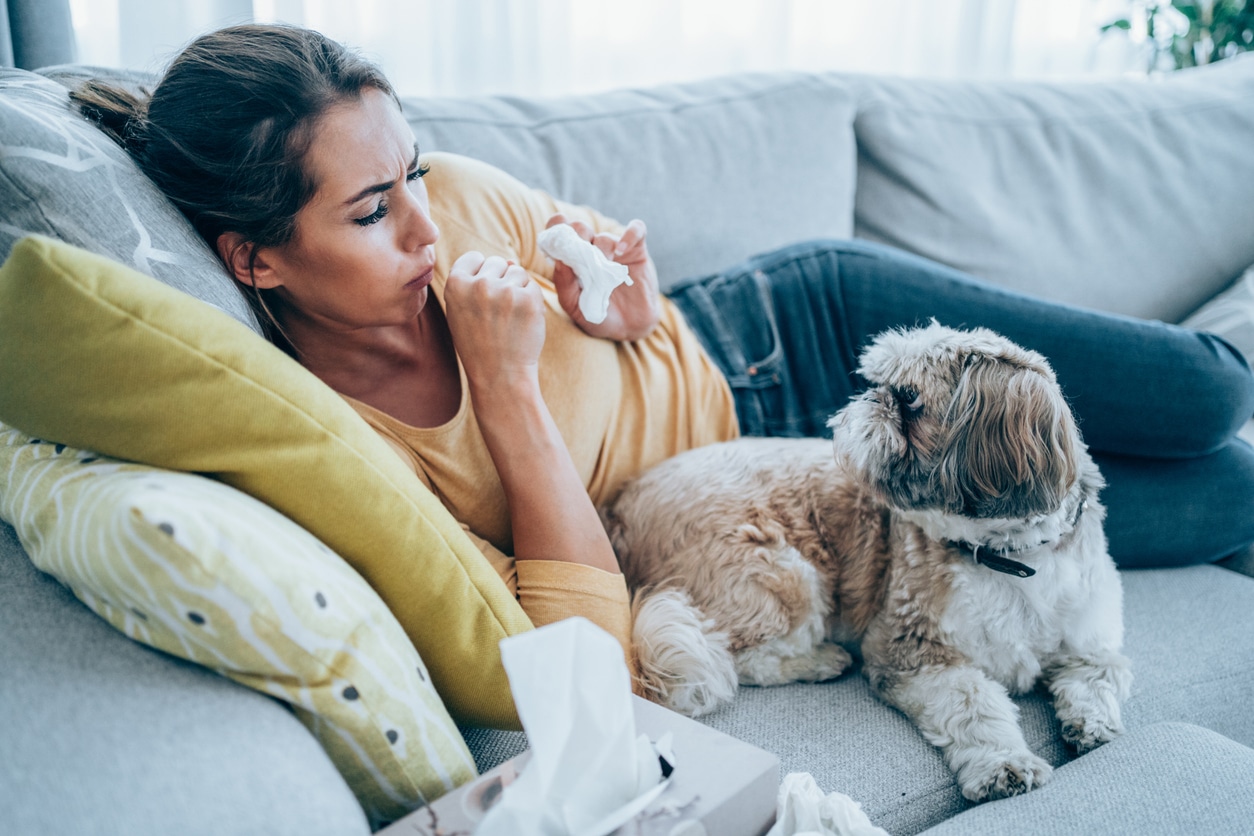We love our pets! Almost two-thirds of Americans own a pet, and nearly all pet owners consider their pets part of the family.

For many, though, those beloved pets mean allergies. 10-20% of the population worldwide is affected by allergies to dogs and cats. Rabbits, hamsters, horses and other animals can trigger allergy symptoms too. People can also be allergic to birds. As with any allergy, pet allergy symptoms result from the immune system overreacting to substances that are generally harmless—in this case, the proteins found in pet dander, fur, saliva, skin or urine.
What Are the Symptoms of Pet Allergies?
Allergy symptoms usually involve your airways, sinuses and skin, especially with pets. The most common symptoms include:
- Coughing
- Sneezing
- Itchy nose and eyes
- Runny nose
- Stuffy nose
- Facial pressure or pain
- Hives or rash
- Watery eyes
Symptoms will most commonly be triggered by touching the pet and then touching your face or eyes. If your allergies are especially severe, symptoms may appear just by being in the same room as the pet.
How Do I Know if I’m Allergic to Pets?
You may have pet allergies if you display any of the above symptoms 30 minutes to 24 hours after encountering an animal. Consider getting an allergy test to find out for sure.
It is noteworthy that pet allergies are often genetic. If you know you’re allergic to animals, it’s a good idea to find out if your child(ren) might also be allergic to animals.
Where Are Pet Allergens Found?
Pet allergens can be found everywhere, even in places where pets have never been: homes, workplaces, classrooms and in the air. When animals shed their skin cells, they create dander. Dander is the most common animal allergen, and it’s a particular problem because it is very small and light and can remain airborne for a long time. It collects easily in carpet, upholstered furniture, bedding and clothing. If a surface can collect dust, it can collect dander.
How Can I Treat Pet Allergies?
The best way to treat pet allergies is to avoid your allergy triggers in the first place. But we all know that’s easier said than done.
When you can’t completely avoid animals, there are plenty of options to help control symptoms:
- Over-the-counter antihistamines like Claritin and Zyrtec
- Nasal rinses to flush the allergens out of your nose and cut down on mucus production
- Eye drops to rinse allergens from your eyes and relieve burning or itchiness
- Immunotherapy,which treats allergies by reducing the body’s natural response to the allergen
Also, check out our Living with Pets guide for ways to limit your allergic exposure while maximizing your continued relationship with your pet. Albany ENT & Allergy Services is here to support you, your pet and your allergy management.